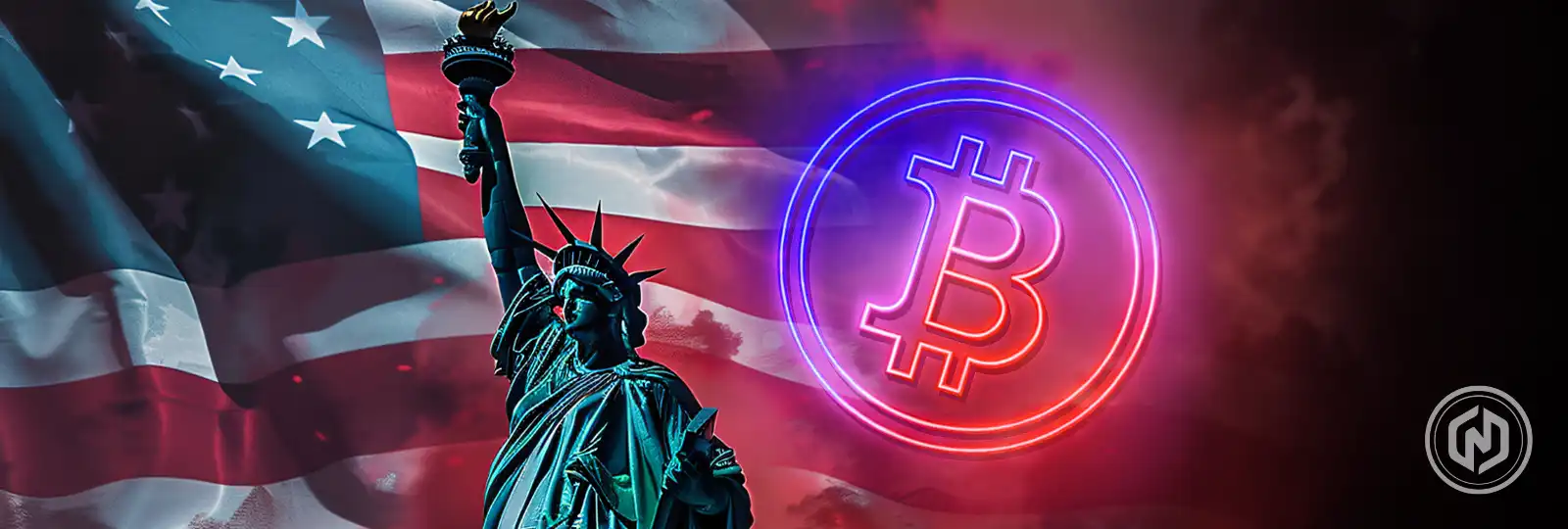Key Highlights:
- SEC Chairman Paul Atkins states that most digital assets won’t be classified as securities under the new guidelines
- Project Crypto aims to bring offshore crypto businesses back with crypto-friendly regulations
- New initiative will allow unified trading platforms (super applications) and recognize DeFi under US oversight
On July 31, SEC Chairman Paul Atkins announced the launch of Project Crypto, an initiative to secure America’s position as the global leader in blockchain and digital asset innovation.
The move, framed as a response to President Trump’s call to make the U.S. the “crypto capital of the world,” is a dramatic shift from the regulatory uncertainty that has forced much of the industry offshore in recent years.
“We are at the threshold of a new era in the history of our markets,” Atkins stated in an official statement, drawing parallels to past financial revolutions—from the Buttonwood Agreement that birthed the New York Stock Exchange to the digitization of securities clearing in the 1970s. “America must do more than just keep pace with the digital asset revolution. We must drive it.”
From Paperwork Crisis to Blockchain Revolution
Atkins shared his vision in the press release, recalling the “Paperwork Crisis” of the 1960s, when Wall Street nearly collapsed under the weight of manual stock certificate processing.
The agency’s solution then was the creation of the Depository Trust and Clearing Corporation (DTCC). This move had paved the way for electronic trading. Now, he argues, blockchain presents a similar inflection point.
“Breakthroughs don’t belong in the past,” Atkins said, highlighting that the agency’s role is to “enable innovation, not stifle it.”
He pointed to the Trump administration’s recent GENIUS Act, which established a regulatory framework for stablecoins, as proof of bipartisan momentum. But Project Crypto goes further, promising a top-to-bottom modernization of securities rules to accommodate on-chain markets.
Key Highlights of SEC’s Project Crypto
1. Bringing Crypto Offerings Back to the U.S. Shores
Atkins minced no words in criticizing the previous administration’s “regulation-by-enforcement” approach, which he blamed for pushing crypto projects into opaque offshore structures. “The days of decentralization theater and confusion over security status are over,” he said.
A central focus will be clarifying the Howey Test, which is the legal standard for determining whether a crypto asset is a security. “Most crypto assets are not securities,” Atkins stated, but ambiguity has forced entrepreneurs to treat them as such.
The agency will issue clear guidelines to categorize assets (e.g., digital commodities vs. securities) and create “safe harbors” for token sales and airdrops.
“It should not be a scarlet letter to be deemed a security,” he added, teasing rules to let tokenized equities and bonds flourish domestically despite mounting opposition from traditional financial industry groups.
2. Self-Custody and Trading Freedom
In a nod to crypto’s libertarian roots, Atkins pledged to defend self-custody wallets as a “core American value.” However, he also acknowledged the need for regulated custodians, vowing to overhaul “archaic” rules, such as SAB 121, which critics say have stifled institutional crypto services.
By doing this, the SEC chair wants to allow investors to trade crypto securities alongside traditional assets on unified platforms (dubbed “super-apps”) without juggling multiple licenses. “Why shouldn’t a broker-dealer offer crypto staking, stock trading, and stablecoin payments under one roof?” Atkins asked.
3. Decentralized Finance Gets a Seat at the Table
Perhaps the most radical proposal is embracing fully disintermediated systems like decentralized exchanges (DEXs). “Federal securities laws assume intermediaries, but that doesn’t mean we should force them where they aren’t needed,” Atkins said.
The SEC will carve out space for “pure software publishers” while drafting new rules for hybrid models to create a delicate balance between oversight and innovation.
The Global Stakes
Atkins framed the initiative as a geopolitical imperative, citing the President’s Working Group on Digital Assets’ warning that rivals like the EU and Singapore are racing ahead. “The world is not waiting,” he stressed. “We must reshore the businesses that fled—and the jobs they took with them.”
The announcement comes a day after the White House Working Group disclosed a report on Digital assets.
Also Read: Jito Labs Urges SEC to Approve Solana Liquid Staking in ETFs


